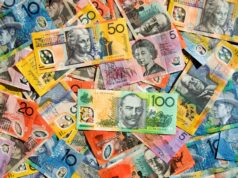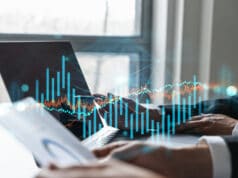You know this by now that most day traders fail. Indeed, in Europe, all online brokers are required by law to state the exact percentage of their customers who lose money. For FxPro, their percentage is 80% while for CMC Markets, their percentage is 79%. The failure rate of most brokers I reviewed was between 75% and 82%.
The reason for most of these failures is that most people don’t realize the stage they are at as traders. In this article, we’ll look at the five key stages that all traders go through. The stages apply to all types of traders, including those who trade stocks, commodities, exchange-traded funds (ETFs), and currencies.
Unconscious incompetence
So, here’s how most day traders approach the industry. They hear of someone who makes money as a day trader. Or they see a flashy advert by a broker talking about the exciting world of trading. Excited, they rush, find an online broker, open a demo account, and make some money.
After a few days of trying, they make some money and then open a live account. They start making some money and lose it all within a few days.
This stage is known as unconscious incompetence and most, including successful day traders, go through this stage. In this stage, the trader does not know much about the market and the skills one requires to become a successful trader.
They don’t know anything about leverage, position sizing, stop loss and trailing stop, technical analysis, and fundamental analysis. Unfortunately, this is the stage where most peoples’ online trading ends.
Some of the top characteristics of an unconscious trader are opening trades without doing any research, not putting a stop loss and taking profit, risking too much, and getting extremely stressed when they lose money.
Conscious incompetence
In this stage, a trader realizes how little they know about trading. A good number of traders who move from the first to the second stage will end up becoming successful professionals.
At the conscious incompetence stage, the trader starts the journey of learning. They look for all available books, websites, YouTube videos, and even enroll in some paid online day trading classes.
Among the most popular books they read are Day trading and swing trading by Kathy Lien and Welcome into my trading room, by Alexander Elder. For websites, they turn to popular trading education platforms like DailyFx and BabyPips. For YouTube videos, they turn to Warrior Trading and Trading with Rayner.
It is at this stage that they realize how the financial market works, what the various currency pairs mean, the importance of leverage, and how to manage risk in the market.
Traders in the conscious incompetence stage are not yet profitable. Indeed, most of them have already returned to the demo account, where they start to experiment with what they have learned in the videos and materials.
Unfortunately, at this stage, they are not yet able to create a workable trading strategy. They still don’t know how to apply what they have learned.
The “Aha!” or eureka moment
The Aha! moment, also known as eureka, is the stage where traders start understanding the concepts they have learned in the conscious incompetence stage. They start grasping how the financial market works and even start reflecting on their initial mistakes.
Also, at the eureka stage, the traders realize that they don’t actually need all the information they have learned. For example, they realize that they don’t need to have a good understanding of all the technical indicators they have learned. Similarly, they understand that they don’t need to know all the candlestick patterns they have learned.
At this stage, they have an understanding of the type of trader that they want to become. This can be a swing trader, a price action trader, or even a scalper. Also, they realize that all they need is to have a good and simple strategy.
Most importantly, they have gained some mentors to guide them. This is important since having someone who has been there, done that can help them become better traders faster.
At this stage, they have also been in a demo account for months and have even started making consistent profits.
Conscious competence
Unfortunately, most day traders don’t get to this point since the first three stages can take months or even years. To most people, the easiest path is to give up.
Fortunately, those who get to this stage end up becoming excellent day traders. At the conscious competence stage, they already have a trading system or strategy. They also have a record of making profitable trades.
For example, at this stage, traders have a set of financial assets that they trade on a daily basis. They have also learned the importance of having a trading journal. Most importantly, they have a good understanding of how to apply various technical indicators to make profitable trades.
Unlike in the first stage, traders know how to manage their emotions. They understand that not all trades they initiate will make them money. So, they have a risk management strategy that ensures that they only lose less money than they make.
Unconscious competence
This is the final stage that all successful day traders go through. Only a few people reach it because it takes years to get to. At this stage, day trading becomes routine, and the traders are never worried about anything. They don’t get excited over big gains or mad after making big losses.
Traders have a few distinct qualities at this stage:
- They utilize a well-tested day trading strategy they have developed over many months or years.
- They have mastered the art and science of risk management.
- While they have a strategy that works, they are constantly learning and testing new trading approaches.
- They mostly don’t spend most of their time trading. Instead, since trading has become a lifestyle for them, they only open a few trades and make more money.
Final thoughts
As a trader, the most important thing you can do is identify the stage that you embark on. By so doing, you will be in a good position to learn more as you develop your trading journey. For example, if you have just known about the trading industry, you are most definitely in the unconscious incompetence stage. As such, you should not try to trade with real money at this stage.




